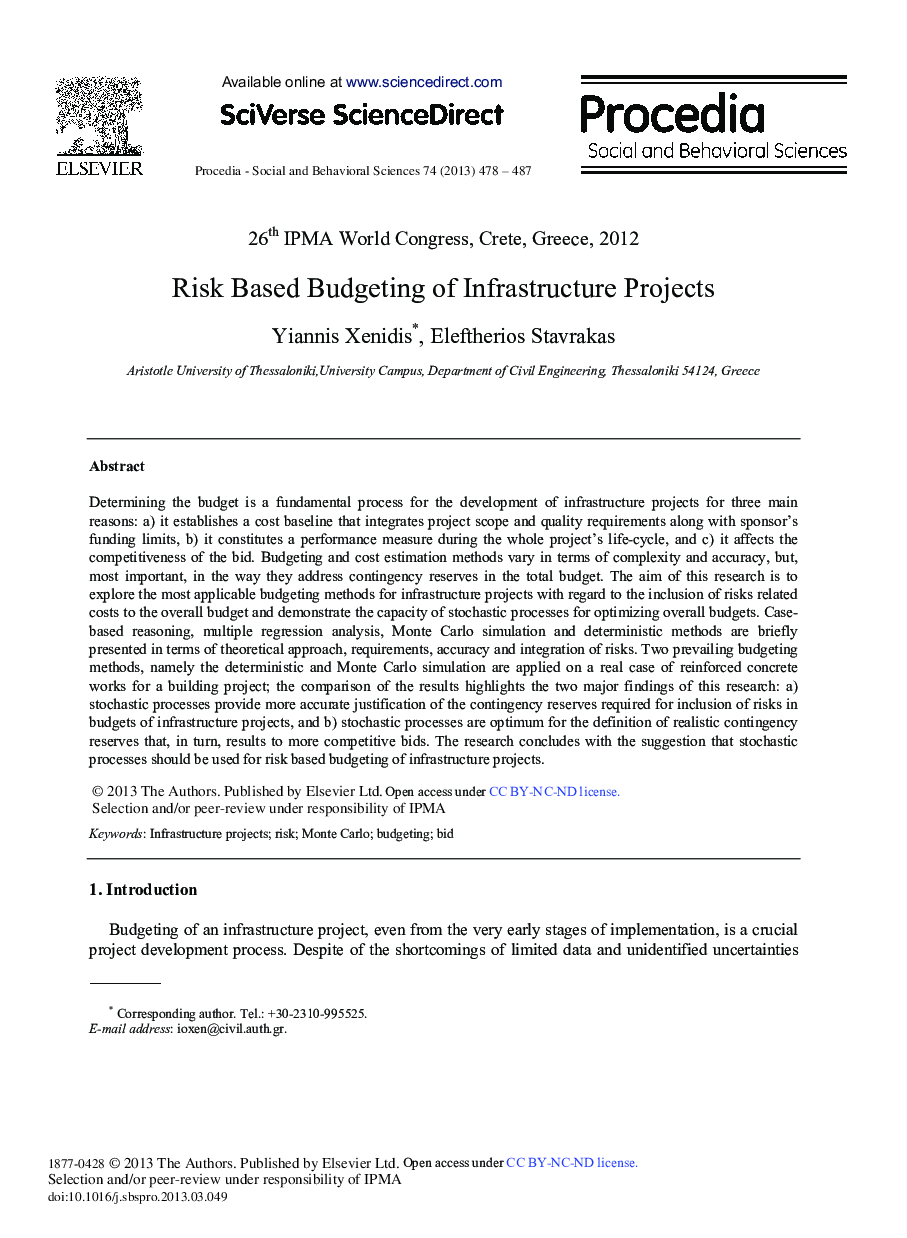| Article ID | Journal | Published Year | Pages | File Type |
|---|---|---|---|---|
| 1119887 | Procedia - Social and Behavioral Sciences | 2013 | 10 Pages |
Determining the budget is a fundamental process for the development of infrastructure projects for three main reasons: a) it establishes a cost baseline that integrates project scope and quality requirements along with sponsor's funding limits, b) it constitutes a performance measure during the whole project's life-cycle, and c) it affects the competitiveness of the bid. Budgeting and cost estimation methods vary in terms of complexity and accuracy, but, most important, in the way they address contingency reserves in the total budget. The aim of this research is to explore the most applicable budgeting methods for infrastructure projects with regard to the inclusion of risks related costs to the overall budget and demonstrate the capacity of stochastic processes for optimizing overall budgets. Case- based reasoning, multiple regression analysis, Monte Carlo simulation and deterministic methods are briefly presented in terms of theoretical approach, requirements, accuracy and integration of risks. Two prevailing budgeting methods, namely the deterministic and Monte Carlo simulation are applied on a real case of reinforced concrete works for a building project; the comparison of the results highlights the two major findings of this research: a) stochastic processes provide more accurate justification of the contingency reserves required for inclusion of risks in budgets of infrastructure projects, and b) stochastic processes are optimum for the definition of realistic contingency reserves that, in turn, results to more competitive bids. The research concludes with the suggestion that stochastic processes should be used for risk based budgeting of infrastructure projects.
